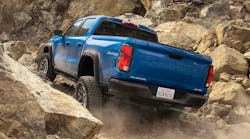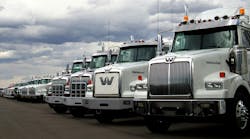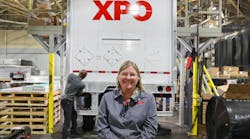Everything about cars and light trucks is changing and changing fast, both in terms of technology and market demands. And that pace won’t be letting up anytime soon, according to Robert Lutz, vice chairman-global product development for General Motors. In fact, it’s transforming every facet of the domestic automotive business, from future market focus to investments in technology and research priorities.
“All the domestic automakers have been routinely dismissed as dumb, unprepared, anachronistic … an endangered species. It’s left me incredulous,” he told a gathering of high-level automotive executives. “Are we to believe that three independent companies, with three completely diverse global management teams, grounded by three different and independent boards… all at once nearly imploded because they were all just the same level of stupid at the same time? The truth is, going forward, this industry is on the cusp of radical change… a transformation, a period of what I call ‘discontinuous change.’”
Speaking at the industry’s annual Management Briefing Seminars in Traverse City, MI, Lutz noted that just a decade ago 80% of global auto industry sales came in the developed markets of the U.S., Canada, Australia, Japan and Western Europe. Right now, that number is about 62% – and falling. “We’ve identified and targeted 11 emerging markets around the world where we’ve directed our investment focus, places like China, India, Russia, Eastern Europe, Latin America and the Middle East,” he said.
Lutz also stressed that on the technology side, no one solution is right for every part of the world, or even every consumer in any given market. “And regardless of the fuel, regardless of the technology, our goal remains the same – the best possible fuel economy for whatever type of vehicle our customers choose.”
Fuel economy needs go hand in hand with environmental and energy security issues, he added, pointing out that the most cost-effective solution for changing the greenhouse gas “footprint” of the automobile, while reducing dependence on foreign oil, is ethanol. The OEM has built 2-million flex-fuel vehicles capable of running on ethanol fuels so far.
GM also plans to introduce four more hybrids in the U.S. this year, going on to bring 16 new hybrid models to the market in the next four years. “Later this year we’ll introduce the industry’s first ‘two-mode’ hybrid SUVs, which will get 40% better city fuel economy than their gasoline-only counterparts,” said Lutz.
“Down the road, we’re developing several new technologies that promise even greater fuel efficiency, including a ‘plug-in’ version of our Saturn Vue Green Line hybrid,” he added. “We’re also developing fuel cell vehicles like our Chevy Sequel concept, which can travel 300 emissions-free miles on a single tank of hydrogen. This fall, we’ll have the largest customer-driven fuel-cell test fleet in the world, more than 100 Chevy Equinox fuel cells.”
Lutz said the ultimate propulsion system goal for GM and other domestics is a concept called “E-Flex,” with the “E” standing for electricity. “E-Flex is a ‘flexible’ system because the electricity can come from many different sources, such as a small motor running on bio-fuel, a hydrogen fuel cell, or even directly from the power grid,” he explained.
“By offering a system that drives vehicles with any of these fuels, E-Flex will provide customers around the globe with a single elegant solution to tomorrow’s energy issues,” he continued. “Believe me, electrically driven vehicles represent the next great paradigm shift in the automotive industry.


